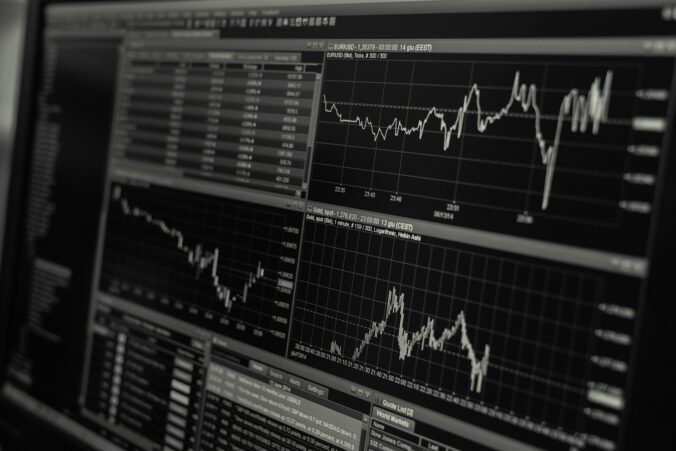Derivatives are financial instruments whose value derives from other assets, reference rates, or market indices. They can be derived from physical assets, such as soybeans, corn, and oil, as well as from financial assets like currencies, stocks, or interest rates. The main types of derivatives are: forward contracts, futures contracts, options, and swaps.
What Is the Trading Dynamics?
The trading dynamics of derivatives is relatively straightforward: the parties involved commit to buying or selling a specific asset for a predetermined price within an established timeframe. This transaction involves a prior agreement on the object, price, and deadline, which are known in advance by both parties. However, what generates uncertainty and risk is the fact that the future price of the underlying asset for the derivative is always unknown.
Although the trading itself is relatively simple, the strategies for operations with these instruments can be extremely complex.
What Is the Utility of Derivatives?
Each type of derivative has its own characteristics and trading rules; however, they all practically serve three purposes: hedging, speculation, and arbitrage, as detailed below:
Hedging
Derivatives are especially useful for locking in asset prices in the future, acting as a sort of insurance that reduces the impacts of price volatility in the markets. This function allows companies to better predict and plan their cash flows, as they have prior knowledge of expenses and costs. This use, known as hedge, is particularly relevant for companies with debts in foreign currency, such as dollars or euros, or that require these currencies to import inputs. Furthermore, derivatives are extremely important for businesses in agriculture, mining, and manufacturing that directly depend on commodities.
Speculation
On the other side of hedging operations, we usually find speculators. These agents profit from the variations between the agreed prices in contracts and the actual prices of commodities, which can result in gains or losses for the sellers and buyers of derivatives.
For the speculator, the underlying asset of the derivative is not of utmost importance; they are more interested in the risks involved in the operations and the potential to make profits.
Although some people have a negative view of speculators, they play a crucial role in the financial market. By acting as counterparts for those seeking price protection, speculators are essential for the market’s functioning, assuming risks and generating liquidity.
It is important to mention that studies suggest that day trading generally results in losses for individual investors, and these losses can be amplified in cases of leveraged operations that use derivative instruments.
Arbitrage
Some investors use derivative instruments to perform arbitrage operations, which are considered lower risk compared to speculation. This is because, in arbitrage, the buying and selling prices are already known in advance.
In simple terms, arbitrage consists of taking advantage of different prices for the same asset in various markets. Although the intrinsic value of the asset is the same regardless of the market, the price formation process is not perfect, which can lead to price discrepancies. This is where arbitrage comes in, seeking to equalize prices and generate profits, typically small in each operation.
In times of high-frequency trading, home brokers, and ultra-fast data transmission, arbitrage opportunities are fewer, and the price formation process tends to be more efficient. However, historically, derivatives used in arbitrage have been very useful for investors who made profits and for markets that became more efficient.
With Great Power Comes Great Responsibility
There are various controversies surrounding derivatives, but it is undeniable that these instruments play a useful and crucial role in modern capitalist economies. However, it is essential to consider the magnitude of operations involving these assets and the possibility of generating systemic risks. Therefore, I believe that such operations should be conducted with caution and based on in-depth studies. I agree with the words of the Oracle of Omaha:
“Derivatives are financial weapons of mass destruction.”
— Warren Buffett
How to Invest in the Derivatives Market?
To invest in derivatives, it is necessary to follow some steps, including:
- Know your investor profile
- Choose a brokerage to operate
- Analyze the derivatives and choose a strategy
If you are interested in investing in this market, consider seeking the assistance of an investment consultant. For more information on how to invest in the four types of instruments mentioned, contact me to schedule a consultation.
